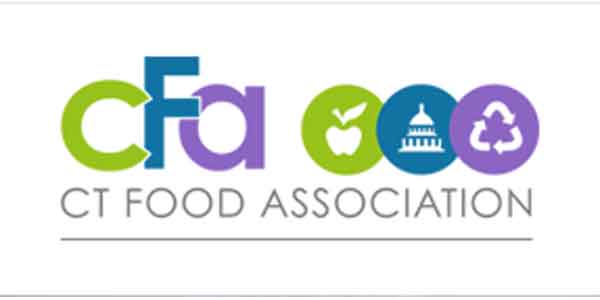No Swipe Fees on Sales Tax Legislation

Grocery retailers accept many forms of payment, including credit cards. As credit and debit card usage has increased, so have swipe fees, also known as interchange fees, which are charged to grocers by the card companies. Many grocers say that credit card swipe fees are the second highest operating cost, after labor. Significantly, swipe fees are also charged on the sales tax portion of a receipt.
Grocers Collect Taxes for the Government with little or no Compensation
Grocers partner with the government on a variety of issues. One way is how grocers and other merchants act as the government’s agents in the collection and submission of state and local sales and excise taxes. Some states, to compensate grocers and retailers for their collection of state taxes, will pay them a “vendor discount.” According to the Federation of Tax Administrators, of the states that have a sales tax, eighteen do not offer any vendors’ discount, and most of those that do, pay small amounts (see a chart here).
Model State Legislation and The Truth About Swipe Fees
State legislatures are introducing bills to assist in alleviating this unnecessary burden of overpaying swipe fees by including them on state and local sales tax, at absolutely no cost to the state. FMI has created a paper, The Truth About Swipe Fees, Sales Tax and Retailers which counters some of the misinformation on this issue.
Tennessee was among the first to introduce legislation and HB 375 and its companion, SB 880 are considered model bills. This legislation provides much-needed relief to merchants by either:
1. Deducting the amount of any tax or fee imposed from the calculation of interchange fees specific to each form or type of electronic payment transaction at the time of settlement; or
2. Rebating an amount of interchange or swipe fee proportionate to the amount attributable to the tax or fee.
Under this bill, any deduction or rebate must occur at the time of settlement when the merchant or seller can capture and transmit tax or fee amounts relevant to the sale at the time of sale as part of the transaction finalization. This bill also provides that if a merchant or seller is unable to capture and transmit tax or fee amounts relevant to the sale at the time of sale, then the payment card network must accept proof of tax or fee amounts collected on sales subject to an interchange fee upon the submission of sales data by the merchant or seller and promptly credit the merchant or seller’s settlement account.
Any merchant that accepts credit cards already has the equipment to do this, whether it is a check stand pin pad reader or a mobile credit card reader. Consider how restaurants today can enter a sales amount followed by a separate tip amount into their PIN pads. Merchants enter a pre-tax purchase amount followed by a sales tax amount into their PIN pads. To support this type of legislation, consumers would not need to swipe twice, since banks require that merchants pass Level 2 data in the transaction which already has sales tax separated from the purchase amount. The card companies collect this data and try to sell it back to merchants; Visa markets it as “IntelliLink.”
Visa and Mastercard mandate system updates twice per year, so any system changes can be implemented during these updates. As previously mentioned, this can also be implemented via a rebate at the end of the month requiring zero impact on point-ofsale (POS) systems.
Previously Introduced Bills
Some 18 states have considered this type of legislation (Alabama, Colorado, Florida, Georgia, Idaho, Illinois, Indiana, Iowa, Maine, Mississippi, North Dakota, Ohio, Oklahoma, Pennsylvania, Tennessee, Texas, Virginia, and Wisconsin). In 2023, legislation in North Dakota (SB 2217) passed the Senate and in Mississippi (HB 735), passed the House.
How Much Swipe Fees are Paid on Sales Tax in Each State
Here is a resource that shows the interchange paid on sales tax in each state: How much interchange was paid on sales tax in the US in 2022? (cmspi.com) CMSPI estimates that U.S. merchants paid nearly $8 billion in interchange on sales tax, gasoline and diesel excise taxes, and alcohol excise taxes. Consider the following in Connecticut:
1. IC paid on ST (Est. 2022): $ 79,306,105.29
2. IC paid on Gas + Diesel Excise Tax (Est. 2021): $4,651,046
3. IC paid on Alcohol Excise Tax (Est. 2021): $ 697,423
4. Connecticut does not pay a vendor’s discount to retailers for collecting sales tax
Let’s Stay Local
Prohibiting swipe fees on sales taxes will keep dollars in the state, stimulating economic activity, versus sending them to networks and banks in other states and even other countries. The profits of merchants will stay in the community in which they operate. Retail grocers contribute to their local food bank, children’s little league teams, churches and synagogues, and local charities; in other words, their success is directly tied to the community they serve.
Not Just Grocery Retailers Overpay
Aside from grocers, other businesses pay swipe fees on sales tax. For example, restaurants, convenience stores (read testimony from Sheetz here), hotels, car dealerships, the travel sector, and small mom-and pop businesses are burdened with overpaying this swipe fee. Many of these businesses, including grocery stores, run on razor-thin margins, so every penny counts.
